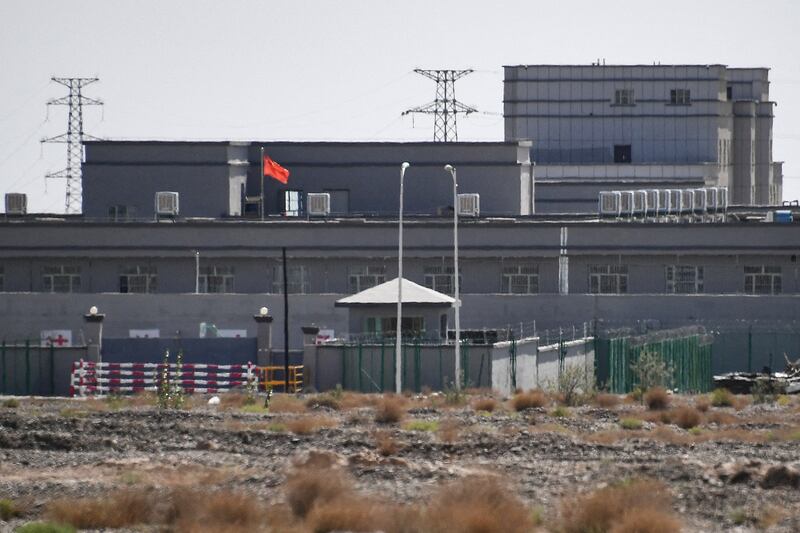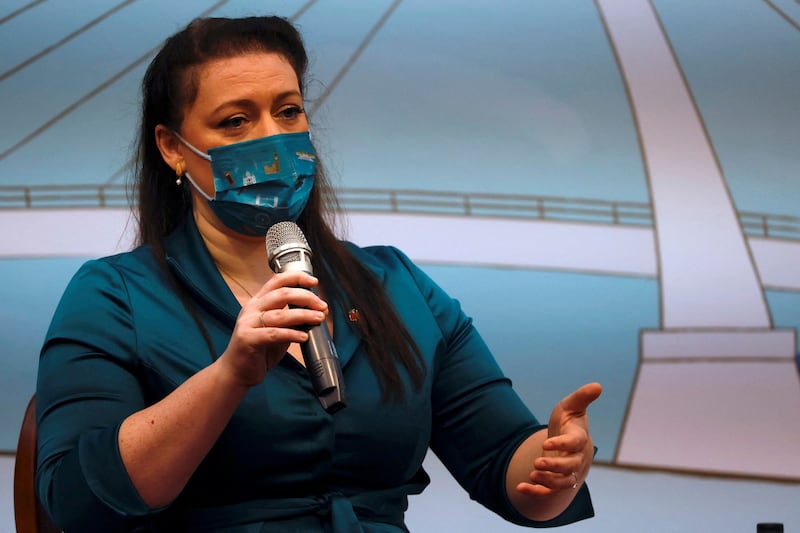Calls are growing in the United Kingdom for greater scrutiny of British universities' "risky" ties with Chinese institutions, some of which have been linked to the genocide of Uyghurs and the development of technology useful to the People's Liberation Army.
A recent investigation by The Times found that some 42 British universities have links with Chinese institutions connected to "the repression of the Uyghurs, espionage, nuclear weapons research or hacking," the paper said in an editorial commenting on the news article.
"More worryingly, some 21 top universities, including Cambridge, Sheffield, Leeds and Queen Mary University of London, are partnered with ‘very high risk’ Chinese institutions," it said, adding that the government has warned that China is "openly harvesting foreign research" to aid its military development.
The report was published amid growing concerns over potential threats to British national security and interests from Chinese infiltration, espionage and political influence, as well as an ongoing push by Beijing to spread its propaganda far beyond China's borders.
British universities' Chinese partners include institutions directly controlled by the ministry of defense, known as the "seven sons of national defense."
The partnership between Cambridge University and Beijing's top science and technology university Tsinghua University is well-documented, Radio Free Asia found after a review of publicly available evidence for The Times' claims.
In May 2022, Tsinghua Vice President Zeng Rong told a symposium attended by Cambridge's Vice President of Research and International Affairs Anne Ferguson-Smith he expected joint scientific research to continue despite the pandemic, under a funding arrangement set up in 2019, according to an account of the symposium on Tsinghua's official website.
Voice-recognition software
Tsinghua scientists led by Nurmemet Yolwas published a paper in 2018 outlining their research in how to train voice-recognition software to recognize the Uyghur language, as the ruling Chinese Communist Party began the mass incarceration of millions of Uyghurs in "re-education camps" in its northwestern region of Xinjiang.
The camps, widespread reports of forced labor, rights abuses and mass technological surveillance later led the State Department to describe what was happening in the region as genocide.

Details of teaching and research cooperation between Harbin Engineering University in northeastern China and three of the four Scottish universities mentioned by The Times -- Strathclyde, Aberdeen and Dundee -- are also well-documented on university websites.
The Harbin Engineering University's department of naval engineering describes itself on its homepage as "an important scientific research and talent training base for China's shipbuilding industry, naval equipment, and marine development."
The university is among the seven "national defense universities" listed on Baidupedia, the Chinese Wikipedia, and was listed as the recipient of sensitive information in the 2019 espionage trial of Houston entrepreneur Shan Shi.
Alicia Kearns, who chairs the British House of Commons' foreign affairs committee, said the extent of ties between British and Chinese universities were "extremely troubling."
"Pleading ignorance will no longer cut it," Kearns told The Times. "Universities must be clear-eyed about relationships they are entering into with institutions designed to bolster China's military capabilities, or those guilty of facilitating grave human rights abuses."

Former golden era
The Times said the partnerships were "a hangover from the 'golden era'" of Sino-British ties under former prime minister David Cameron, and said many more partnerships exist that "pose no risk," according to a risk-rating scale developed by the Australian Strategic Policy Institute.
The paper's expose came after warnings from British defense analyst Robert Clark in October 2022 that at least 60 Chinese nationals from high-risk institutions linked to the Chinese military are currently employed in British universities.
In a paper for the think tank Civitas, Clark found that two individuals were employed while concurrently listed as serving People's Liberation Army personnel, one with the Air Force Engineering University, and the other with the PLA's Strategic Support Force.
Clark also found eight individuals who worked at various Chinese military-linked institutions during their collaborations with U.K. universities and academics, and three individuals who had previously worked at PLA institutions prior to collaboration with U.K. universities and academics.
The Times' article was published along with three letters calling for moves to curb cooperation with high-risk institutions.
Steve Tsang, who heads the China Institute at the School of Oriental and African Studies in London, called in one of the letters for the government to set up a scientific review body to enabling "a smart decoupling" from risky partnerships, while calling on universities to take steps to end their dependence on income from fee-paying Chinese students.
"The Chinese Communist Party is a hostile power: it does not play by any rules except its own," warned Charles Parton, of the think tank Rusi and Merics, wrote in another letter. "U.K. universities should not help its military or repression systems."
“Extremely dangerous”
Benedict Rogers, who heads the London-based rights group Hong Kong Watch, said in his letter to The Times that "dependency on, or partnership with, China is extremely dangerous."
"The grip that Xi Jinping's dictatorship has means that everyone in China is required to do the party's bidding," he wrote. "That means knowledge being transferred in ways that could enhance China's military expansion."
"It also means threats to academic freedom, as China exerts its influence to spread propaganda and silence dissent,” he wrote.

"I think there is a wider issue of how dependent our universities have become on Chinese students, funding and academic connections," Rogers told Radio Free Asia in a later interview. "I think the British government and the universities now need to work together to act to stop some of these relationships."
"We shouldn't have relationships with institutions in China that either are complicit with genocide and atrocity crimes, or with organizations that pose a threat to us."
The Hong Kong-based China Media Project appeared to agree with him, warning in a Jan. 25 report that Chinese universities are also engaged in facilitating attempts to spread Beijing's propaganda on overseas campuses.
"Such a scheme is already underway in China," according to the report. "It is one of the more egregious examples of how a range of actors in the country — including high-level Chinese Communist Party (CCP) bodies, state media, local governments, and universities — are responding to the top-down mandate from the CCP leadership to pursue greater 'discourse power' around the world as a whole-society effort."
The report by David Bandurski cited the recent setting up of the Jiangxi International Communication Research Center in cooperation with state media parent company the China Media Group, at the Nanchang Aviation University.
"The new center is an experiment in combining central CCP media and universities to carry out international communication by using the 'overseas student resources' of the university," Bandurski wrote, citing coverage by a newspaper controlled by the ministry of education.
Nanchang Aviation University has cooperation agreements with more than 70 universities across 20 countries, including the United States and the United Kingdom.
"The existence of the new center, and its exploitation of programs undertaken in the spirit of exchange, could also mean that Chinese students in programs overseas ... are enlisted for state communication work having no relation to their studies," Bandurski warned.
The Nanchang Aviation University project is likely the first manifestation of a Chinese propaganda concept known as "international communication by all," he wrote.
Translated by Luisetta Mudie. Edited by Malcolm Foster.
